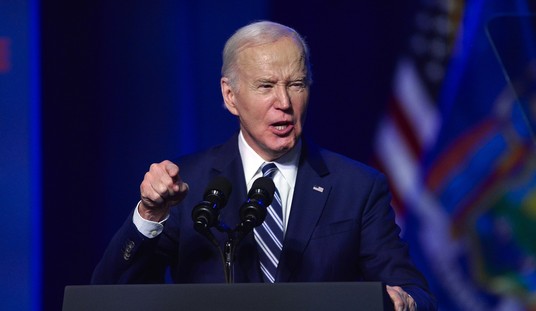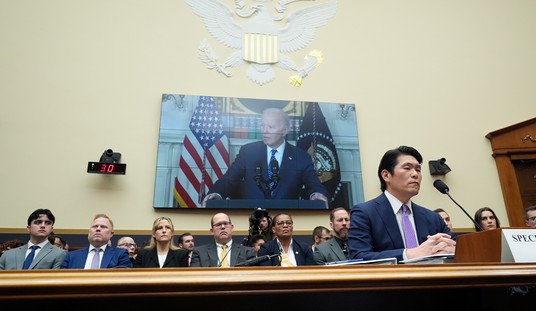As oil stopped flowing in the Gulf, we’ve seen a flurry of “Where Did The Oil Go?” stories from the USA Today, Tom Friedman at the New York Times, and others. A new TIME Magazine article begrudgingly admits that “obnoxious anti-environmentalist Rush Limbaugh” may have been right when he asserted that the BP oil spill was something less than “the worst environmental disaster America has ever faced,” in the words of President Barack Obama.
The hype and the hysteria are documented below the fold. Here is TIME’s summation:
Anti-oil politicians, anti-Obama politicians and underfunded green groups all have obvious incentives to accentuate the negative in the Gulf. So do the media, because disasters drive ratings and sell magazines; those oil-soaked pelicans you saw on TV (and the cover of TIME) were a lot more compelling than the healthy ones I saw roosting on a protective boom in Bay Jimmy. Even Limbaugh, when he wasn’t downplaying the spill, outrageously hyped it as “Obama’s Katrina.” But honest scientists don’t do that, even when they work for Audubon.
TIME raises an interesting point: they fling the strongest imaginable possible by calling Limbaugh an “anti-environmentalist”, but clearly one can be pro-environment and anti-environmentalist at the same time. Especially when the environmentalists who have the loudest voice and the ear of the Obama Administration put their political agenda ahead of science.
Nearly the entire environmental community had this event pegged wrong. During that time, they ignored science, common sense and the truth in an effort to promote an anti-capital, anti-development Luddite agenda.
It took just 100 days to smoke them out. Their hysteria, amplified and abetted by the news media, kept tourists away from pristine beaches hundreds of miles away from the nearest spill landfall. The Obama Administration has seized upon the dire predictions as an excuse to shutter the domestic offshore oil and gas business for the foreseeable future, and admits to doing it without regard to the economic impact.
It may be the “worst spill in history” if all you do is count barrels. Measured in terms of environmental impact, it’s nowhere close. And sadly, much of the real, human damage, has resulted from the media and political reaction, not from the spill itself.
The BP Spill: Has the Damage Been Exaggerated?
- 3,000 dead birds, half of them oiled, some just “dead birds”. Valdez spill killed an estimated 432,000 birds.
- Three oiled carcasses of marine mammals.
- 492 dead sea turtles, 17 visibly oiled. 1 other dead reptile.
- Despite thorough testing, no seafood contamination has been found.
- Evidence suggests that the effort to clean oil out of the sensitive marsh may be more damaging to the marsh than the oil itself.
Marine scientist and former LSU professor Ivor van Heerden: “There’s just no data to suggest this is an environmental disaster. … There’s a lot of hype, but no evidence to justify it.”
Paul Kemp, another former LSU scientist who is now a National Audubon Society vice president, says the impact of the spill on the threatened marsh is like “a sunburn on a cancer patient.”
The scientists I spoke with cite four basic reasons the initial eco-fears seem overblown. First, the Deepwater oil, unlike the black glop from the Valdez, is unusually light and degradable, which is why the slick in the Gulf is dissolving surprisingly rapidly now that the gusher has been capped. Second, the Gulf of Mexico, unlike Alaska’s Prince William Sound, is very warm, which has helped bacteria break down the oil. Third, heavy flows of Mississippi River water have helped keep the oil away from the coast, where it can do much more damage. And finally, Mother Nature can be incredibly resilient.
None of these factors are surprises. They were there for anyone who cared to assess the science from the very first week of the spill. Compare and contrast that assessment with my answer to a question during a Congressional subcommittee hearing on June 17:
Mr. Maley: From Day One of the spill, I’ve seen journalists … trying to force [the story] into an Exxon Valdez template. This is not a Valdez spill. It’s a much lighter grade of crude. It was 50 miles offshore. It took it a month to make it to shore, and once it’s in the marsh — it’s a terrible thing and I am not trying to minimize it, but Mother Nature has ways to take care of it. And my expectation would be that in a few months you would be able to find some impact. In a year, possibly. After a few years….I am not an environmental specialist but my thinking would be that Mother Nature’s gonna take care of it.
And, just for the record, here is a partial list of Vladimir’s blogs over these last 100 or so days. Mostly, these are the ones that pointed out the hype, hysteria and departure from common sense that characterized the reportage of the spill in the mainstream press.
- May 3: Oil Spill Reality Check
- May 4: Sea Turtle Necropsy Results
- May 8: Oh, the Humanity! Birds, Turtles and the Oil Spill
- May 10: Oh, the Humanity! Part II: Invasion of the Tar Balls
- May 18: Oil Spill Reality Check, Part II
- May 31: Obama’s Damage to Louisiana Will Easily Top BP’s
- June 26: A Little Perspective on the BP Spill
And, lest we forget:
- April 21: Please pray for the missing eleven.
It’s nearly impossible to live in Louisiana, “the Sportsman’s Paradise”, and not have a deep appreciation for the environment. We live it; it’s part of what makes this state special. And so it’s a double insult when do-gooding environmentalists and power-grubbing politicians play out their agendas in our home, using our economy, our jobs and our natural resources as nothing more than tools of authoritarian control.
Cross-posted at VladEnBlog.














Join the conversation as a VIP Member